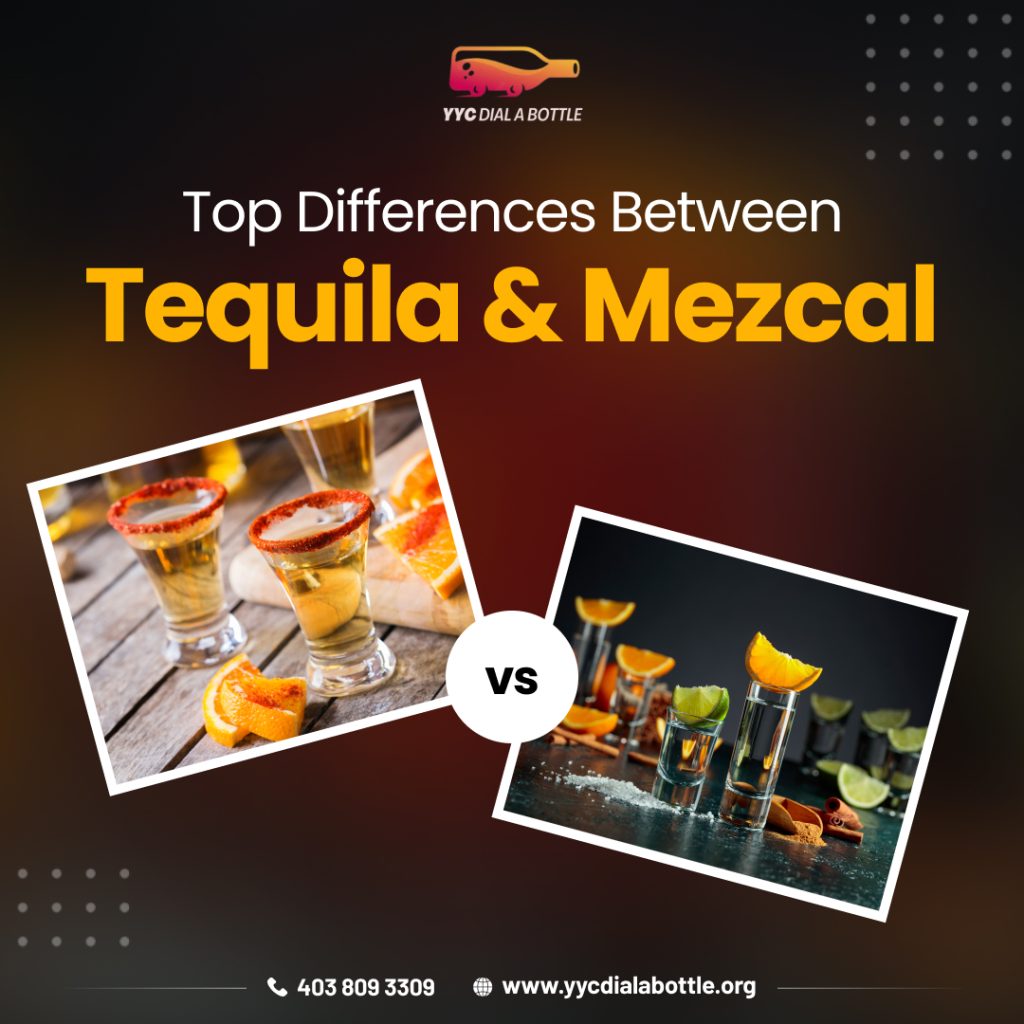Tequila and mezcal are both big parts of Mexico’s spirit scene, but they’re not the same. Even though a lot of people love them, figuring out what sets them apart can be tricky. So before placing the next order for Tequila delivery, gain insight on the differences between these two drinks. They both have deep roots, unique tastes, and fans all over the globe, but they’re not interchangeable. Getting to know the differences can help you appreciate them even more. Let’s take a closer look at what makes each special and why they each have their own spotlight in the world of spirits.

- Where They Come From and Their Origins
Mexico is the birthplace of Mezcal and Tequila. Tequila is mainly made in Jalisco, with a few places in nearby states like Nayarit and Guanajuato also being called out for making it. Mezcal is made in a bunch of states, with Oaxaca being the most famous. Nevertheless, you can also find it in Durango, Guerrero, San Luis Potosí, and other places. Even though Jalisco is known for making mezcal, it’s usually tequila that gets the most attention.
The differences in where they’re grown are big because the weather and the kind of soil make the agave plants taste different and add to their unique flavours. For example, the volcanic soil in Jalisco changes how tequilas taste, making them more complex, just like the rich, earthy soil in Oaxaca makes mezcal richer and more flavourful.
- The Agave Plants
The main thing that sets tequila apart from mezcal is the kind of agave plant used to make them. Tequila is made only from a specific kind of agave called Agave tequilana, or blue agave, and by law, they can’t use any other kind.
Mezcal, on the other hand, is more flexible and can be made from over 30 different agave plants, with the most popular being Agave espadín. Each agave plant gives mezcal a different taste, making it a drink with a lot of variety. For example, mezcal made from Agave tobalá is sweeter and smells more like flowers, while mezcal from Agave arroqueño is stronger and has a more earthy taste. This mix of agave plants makes mezcal a drink with a lot of different flavours and complexity.
- The Method of Production
The essential steps for making mezcal and tequila are the same: gathering agave, cooking it, fermenting it, and distilling it. But there are some significant distinctions in their manufacturing processes.
The process of making tequila usually involves steam-cooking the blue agave hearts, also known as piñas, in massive industrial ovens or autoclaves. The final product is made by crushing the cooked agave and fermenting the juice before distilling it, generally twice. This procedure frequently results in a sharper, clearer flavour profile that brings out blue agave’s inherent sweetness.
Mezcal Production: It is prepared in a more traditional manner that gives a distinct smokey flavour. Agave piñas are roasted underground in pits surrounded with stones rather than steam-cooked. Wood and charcoal are used to produce heat for roasting, giving mezcal its distinct smoky, earthy flavour. Following roasting, the agave is crushed, fermented, and distilled, often in clay or copper stills, depending on the location and distillery procedures.
This handcrafted method, paired with the smokey roasting process, gives mezcal a particular flavour.
- Taste Differences
Even though Tequila and Mezcal are both made from agave, they can taste quite different. This is due to the type of agave used and how they’re made.
Tequila is generally smoother and less complex, especially when made from 100% blue agave. It often has a sweet and spicy flavour, with hints of citrus, pepper, and herbs. The ageing process also plays a big role.
- Blanco: Un-aged, fresh, and vegetal.
- Reposado: Aged for a few months, smoother with oaky notes.
- Añejo: Aged for at least a year, rich and complex with vanilla, caramel, and spice.
Mezcal on the other hand, is known for its smoky, earthy, and often stronger flavour. The type of agave can add sweetness, fruitiness, or mineral notes, but the roasting process is what gives it that signature smoky taste. Mezcal lovers appreciate its complex and deep flavours, which can range from smoky and earthy to sweet and fruity. Like tequila, mezcal can also be aged, creating smoother, woodier reposado and añejo versions.
- Cultural Significance and Popularity
So the next time you order Tequila online, remember that it shares a profound connection to Mexican heritage. While tequila enjoys greater global recognition, it is predominantly consumed in celebratory toasts or as the foundation of cocktails such as margaritas and palomas. It has emerged as a symbol of Mexican national pride and is granted a protected designation of origin, stipulating that authentic tequila must be produced within specific regions of Mexico.
Conclusion
Due to distinct characteristics, mezcal and tequila are both worth trying. One should note that tequila is lighter, more recognisable, and strongly linked to mixed drinks. For individuals who value handcrafted spirits, mezcal’s smokey, robust flavour provides a more daring taste experience. Knowing the distinctions between the two will help you appreciate them more and make the most of them, regardless of whether you’re a fan of one or both. Therefore, the next time you’re picking a beverage, think about the different worlds of mezcal and tequila and maybe give them both a well-earned taste test!
